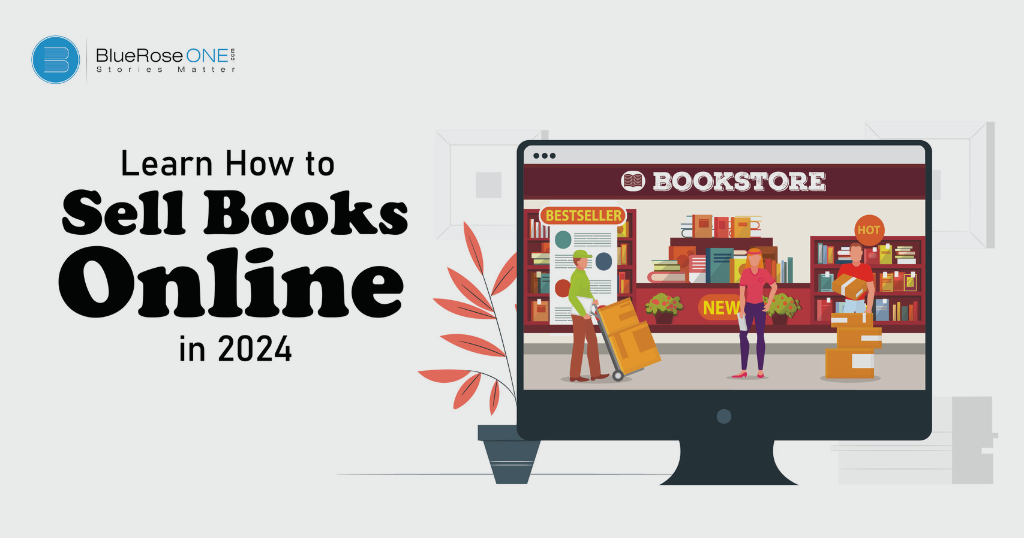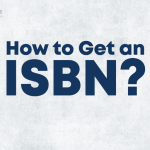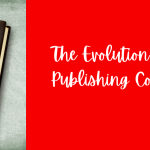Beginning the road to selling books online is a dynamic endeavour that requires a deliberate combination of digital acumen, e-commerce savvy, and persuasive marketing brilliance. Creating a noticeable online presence is the cornerstone of success for authors and publishers alike in the wide digital world. It entails not just displaying literary works but also creating an immersive experience that entices potential readers.
Using e-commerce platforms like Amazon or specialty platforms like Etsy gives up new avenues for connecting with a worldwide audience, offering a marketplace where literary works may find their appropriate audience.
However, the art of online book sales extends beyond the realms of transactional exchanges. Effective marketing strategies play a pivotal role in amplifying visibility, enticing prospective readers, and building a loyal readership base.
From search engine optimisation (SEO) to leveraging social media dynamics and exploring paid advertising avenues, the modern author must navigate a multifaceted terrain to ensure their literary endeavours flourish in the digital marketplace.
Read: Get an Idea on How to Write a Book Dedication: Best Effective Tips to Follow
In this intricate dance of technology and creativity, the journey of selling books online unfolds as a harmonious symphony, where the resonance of captivating narratives meets the algorithms of discoverability and consumer engagement.
Here’s a step-by-step guide:
- Create a professional website
- Utilize e-Commerce Platforms
- Optimise for Search Engines (SEO)
- Build a Mailing List
- Social Media Marketing
- Offer Discounts and Promotions
- Collect and Showcase Reviews
- Create Author Profiles
- Explore Paid Advertising
- Participate in Book Fairs and Events
- Provide Excellent Customer Service
- Stay Informed and Adapt
Create a Professional Website
Creating a good website is the first step towards establishing a strong online presence for your books. The website acts as a central point for potential readers to learn about your work, browse your catalogue, and contact you as an author. It is critical to have a user-friendly interface that allows users to effortlessly move around your site. A clean design with a visually attractive layout and high-quality book covers improves your online platform’s overall aesthetics and professionalism. Furthermore, with an increasing number of visitors accessing material via smartphones and tablets, optimising your website for mobile devices is critical. A mobile-friendly design provides visitors with a smooth and engaging experience, enhancing engagement and increasing the possibility of converting browsers into readers.
Utilize e-commerce platforms
Using renowned e-commerce platforms allows your books to reach a large online audience. Millions of consumers trust platforms like Amazon, eBay, and Etsy, which provide an easy and familiar atmosphere for potential purchasers. Creating thorough product listings is critical for effectively promoting your books. Create captivating book descriptions that entice readers, add high-quality cover photos that visually reflect your work, and include essential metadata to improve searchability. By partnering with these renowned e-commerce platforms, you have access to their current user base as well as their powerful infrastructure, which includes secure payment processing and dependable delivery choices. This method not only simplifies the purchase procedure for clients, but it also provides legitimacy to your books because they are shown with other respected publications in the store.
Optimise for Search Engines (SEO)
Implementing SEO best practices is crucial for enhancing the visibility of your website and book listings in search engine results. This involves strategically incorporating relevant keywords into your book titles, descriptions, and metadata. By aligning your content with what readers are searching for, you improve your chances of ranking higher in search engine results pages. Optimising for SEO not only makes your books more discoverable but also establishes your website as a credible source, ultimately driving organic traffic. Regularly updating your content, improving page load speed, and ensuring mobile friendliness are additional aspects of SEO that contribute to a better overall user experience.
Build a mailing list
Establishing an email list is a powerful tool for connecting directly with potential readers and building a community around your work. Offer incentives such as exclusive content, early access to new releases, or special discounts to encourage visitors to subscribe. A well-nurtured mailing list allows you to maintain an ongoing relationship with your audience, keeping them informed about upcoming releases, author events, and other relevant updates through newsletters. Building this direct line of communication not only fosters reader loyalty but also provides a platform for personalised engagement, turning one-time buyers into long-term fans.
Social media marketing
You may also like: Unlocking Success: How to Sell Books Online Effectively
Offer discounts and promotions
Entice potential buyers by strategically running limited-time promotions, discounts, or bundle deals. Creating a sense of urgency around these offers encourages immediate purchases. This marketing strategy not only attracts new readers but also retains existing ones, fostering a sense of goodwill. Promotions can be communicated through various channels, including your website, email newsletters, and social media platforms. Consider aligning promotions with specific events, holidays, or book-related milestones to maximise their impact. Well-executed discount and promotion campaigns can drive sales, increase visibility, and generate buzz around your books in a competitive online marketplace.
Collect and showcase reviews
Encouraging readers to leave reviews is a crucial aspect of building credibility and influencing potential buyers in the competitive world of online book sales. Positive reviews not only serve as testimonials but also act as social proof, assuring potential customers of the book’s quality. By creating a review-friendly environment on your website and prominent e-commerce platforms, you invite readers to share their experiences and opinions. These reviews contribute to an organic, positive image for your book, attracting more potential readers. As part of your marketing strategy, actively engage with readers who leave reviews, express gratitude, and address any concerns or feedback, fostering a sense of community around your work.
Create author profiles
Establishing author profiles on platforms like Goodreads and Amazon Author Central is essential for connecting with readers on a personal level. A well-crafted author profile provides a glimpse into your background, creating a connection beyond the book itself. Including a bio, a professional photo, and links to your books enhances your online presence and reinforces your identity as a credible author. Engaging with readers through these platforms builds a community around your work. Responding to comments, participating in discussions, and sharing updates make you more approachable and relatable. This connection can translate into increased loyalty, as readers are more likely to follow and support authors they feel a personal connection with.
Explore Paid Advertising
Investing in paid advertising, particularly on platforms like Facebook Ads or Amazon Ads, is a strategic approach to reaching a broader audience. These platforms offer robust targeting options, allowing you to tailor your ads to specific demographics and interests. By investing in targeted advertising, you increase the visibility of your book among potential readers who are more likely to be interested in your genre or topic. Crafting compelling ad copy and eye-catching visuals is crucial to capturing the audience’s attention. Regularly monitor and analyse the performance of your ads, adjusting your strategy based on metrics such as click-through rates and conversions. Paid advertising can be a powerful tool to boost book sales and increase your author’s brand’s recognition,
Participate in book fairs and events
You may also like: Guide to Self-Publishing on Amazon Kindle Direct Publishing
Provide excellent customer service
Exceptional customer service is a cornerstone of successful online book sales. Authors should respond promptly to inquiries, addressing concerns, and creating a positive buying experience. Establishing clear communication channels, offering assistance, and ensuring a seamless transaction process contribute to customer satisfaction. Positive experiences not only lead to repeat business but also generate word-of-mouth recommendations, expanding an author’s reader base. Authors should go the extra mile to understand their readers’ needs, personalise interactions, and resolve issues promptly. In an era where customer reviews hold significant weight, prioritising excellent customer service becomes a powerful tool for building trust, loyalty, and a positive online reputation.
Stay informed and adapt
In the dynamic landscape of online book sales, staying informed about industry trends, platform changes, and emerging marketing strategies is crucial for an author’s sustained success. Authors need to adapt their approaches to align with the evolving online marketplace. Regularly monitoring industry publications, attending webinars, and participating in relevant online forums are effective ways to stay informed. Adapting to changes in algorithms, consumer behaviour, and technological advancements ensures that authors remain visible and competitive. Flexibility and a willingness to embrace new tools and strategies empower authors to navigate the ever-changing digital terrain. By staying informed and adapting, authors position themselves to make informed decisions, optimise their online presence, and effectively connect with their target audience in the evolving digital ecosystem.
There are numerous online marketplaces where you can sell books, reaching a diverse audience of readers. Here are some popular platforms to sell your books online:
- Amazon – Amazon is one of the largest online marketplaces globally, offering a dedicated section for books. You can sell both physical and e-books through Amazon’s platform.
- eBay – eBay is a versatile online marketplace where you can auction or set fixed prices for new or used books. It’s a platform that caters to a wide range of buyers.
- Etsy – While known for handmade and vintage items, Etsy also has a vibrant market for handmade books, rare editions, and book-related crafts.
- Barnes & Noble – Barnes & Noble, a well-known bookstore chain, also has an online marketplace where independent authors can sell their books in physical or e-book formats.
- BookFinder – BookFinder is a niche platform that specialises in finding and purchasing rare, used, and out-of-print books from various sellers.
- Alibris – Alibris is an online marketplace that connects independent book sellers with buyers, allowing you to sell new and used books.
- Book Depository – Book Depository, owned by Amazon, specializes in selling new books with free worldwide shipping. Independent authors can also explore opportunities to sell through their platform.
- Google Play Books – Google Play Books allows authors to sell e-books directly to readers. It’s a platform widely used for digital content consumption.
- Kobo – Kobo is an e-book retailer that partners with independent authors to sell e-books to a global audience
- Smashwords – Smashwords is an e-book distribution platform that allows authors to publish and distribute their works to major retailers, including Barnes & Noble, Apple Books, and more.
- Lulu – Lulu enables authors to publish and sell print-on-demand books and e-books. It provides tools for formatting, cover design, and distribution.
- BookBaby – BookBaby offers self-publishing services, including e-book and print-on-demand distribution, helping authors sell their books to major online retailers.
Read: What is Amazon Self-Publishing: Some Proven Steps for First-Time Authors
When selling books online, consider your target audience, the type of books you’re selling, and the specific features each platform offers. It may be beneficial to use a combination of these platforms to maximise your book’s visibility and sales potential.
















